Bài 3:Điền dạng thích hợp của động từ trong ngoặc để hoàn thành các câu sau:
1.Did you enjoy(watch)______the comedy last night?
2.Many people prefer(do)______gardening after their retirement.
3.My cat dislikes(sleep)________on the floor.
4.My father doesn’t mind(work)______hard.
5.My cousin doesn’t like(study)_________Math and Chemistry.
6.They dislike(talk)__________with each other.
7.Jim and Jane don’t fancy(go)__________out tomorrow.
8.Did you hate(eat)______vegetables when you was small?
9.she didn’t prefer(tell)________him about her plan.
10.James'd like (have)_______dinner in a luxury restaurant.
11.I hope my mother will enjoy(spend)_______time with her grandchildren.
12.Some people enjoy(take)______a shower in the morning.
13.I think your brother won’t mind(lend)________you a helping hand.
14.My boyfriend dislike(wait)____________.
15.What do you detest(do)__________the most?
Bài 4: Dựa vào các từ cho sẵn, viết thành câu hoàn chỉnh:
1.Peter/ enjoy / play/ computer games/ in his free time.
__________________________________________________________________
2.You/ hate/ do/ the washing?
__________________________________________________________________
3.My father/ enjoy/ play/ sports/ and/ read/ books.
__________________________________________________________________
4.The teacher/ 'd like / help/ you/ with difficult exercises.
__________________________________________________________________
5.Jane/ not fancy/ read/ science books.
__________________________________________________________________
6.Which kind of juice/ you/ dislike/ drink/ the most?
_________________________________________________________________
7. Ann/ fancy/ do /DIY/ in her free time.
__________________________________________________________________
8. My father/ prefer/ not eat/ out.
__________________________________________________________________
9.Mr.Smith/ love/ go/ shopping/ at weekend.
__________________________________________________________________
10.Everyone/ adore/ receive/ presents/ on their birthday.
_________________________________________________________
I.BÀI TẬP BỔ SUNG.
Exercise 1. Choose the correct answer.
1. Anna (likes/ hates) doing homework. She is lazy.
2. Lily (likes/ dislikes) the idea of staying out too late. It’s too dangerous.
3. Most girls (detest/ like) cockroaches.
4. Tom (likes/ hates) making models. He never does it.
5. We (enjoy/ hate) spending time with John. He is very interesting.
Exercise 2. Complete the sentences with the verb + -ing.
do; go; play; climb; swim; watch
1. Susan loves ________________ yoga
2. They enjoy _________________ the sports on TV.
3. We really like _________________ in the Hoang Lien Son in February.
4. Simon hates _________________ badmintons but he loves football.
5. I don’t like ___________________ in the pool at the sports centre.
6. Do you like ________________ running in the morning?
Exercise 3. Rewrite the sentence without changing its meaning
1. My father likes to do gardening at the weekend.
→ My father enjoys _________________________________________.
2. She loves to collect glass bottles in her free time.
→ She enjoys ______________________________________________.
3. I enjoy playing soccer.
→ I ______________________________________________________.
4. Do you like seeing a water puppet show?
→ Do you _________________________________________________.
5. Do you enjoy making models with your friends?
→ Do you _________________________________________________.
Exercise 4. Choose the best answer.
1. My mother loves _______ food for my family.
A. preparing B. to prepare C. prepare D. A&B are correct.
2. My grandmother ________ to plant flowers in the garden behind her house.
A. 'd like B. enjoys C. detests D. adores
3. Coco fancies ________ TV. He watches TV whenever he can.
A. to watch B. watched C. watch D. watching
4. My sister hates _______ with the dolls. It’s weird.
A. playing B. to play C. to playing D. A&B are correct.
5. I enjoy ______ with my dog. He’s so cute
A. play B. to play C. playing D. played
6. Tom fancies _______ computer games when he’s at home.
A. playing B. to play C. played D. A&B are correct.
7. Mary _______ reading Conan comics. She spends her free time on reading some volumes.
A. hates B. detests C. dislikes D. enjoys
8. Henry doesn’t mind ________ up early in the morning.
A. waking B. to wake C. wake D. will wake
9. My grandparents love ________ very much. There are a lot of beautiful flowers.
A. doing garden B. doing gardening C. do gardening D. to do garden
10. Nga likes ________ with her close friend on Saturday evenings.
A. window shop B. window to shop C. window shops D. window shopping
11. Do you fancy _______ around the West Lake with me this Sunday morning?
A going B having C. staying D. moving
12. I don't like ________ up early in the winter days. I love ________ in bed late.
A. getting/ stay B. get/ stay C. getting/ staying D. get/ staying
13. My father is fond of ________ a lot of trees and vegetables.
A. growing B. grow C. grew D. grows
14. Teenagers often prefer travelling with their friends ________ travelling with their parents.
A. from B. than C. as D. to
15. His parents are keen on ________ to rock music at night.
A. listening B. listen C. to listen D. to listening

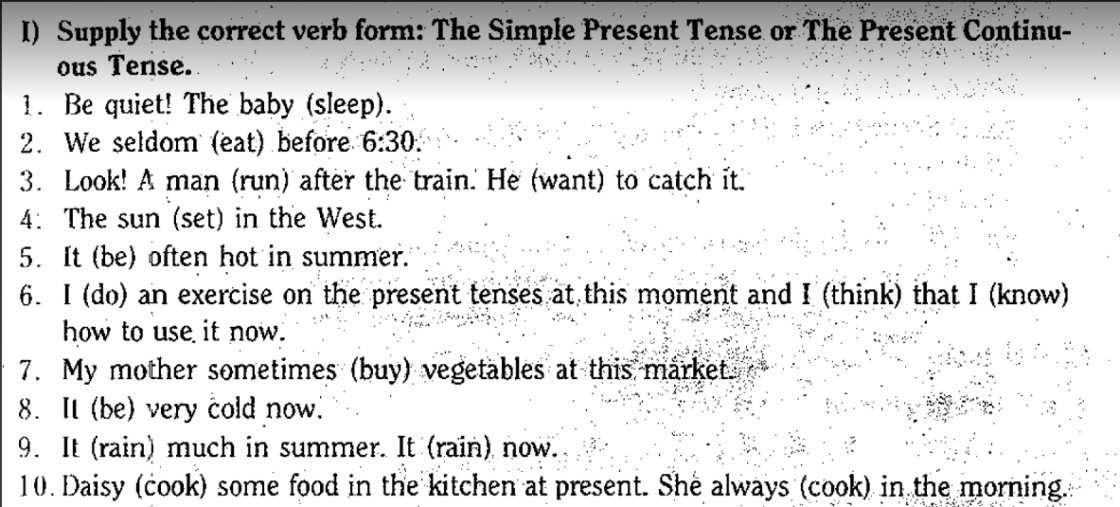
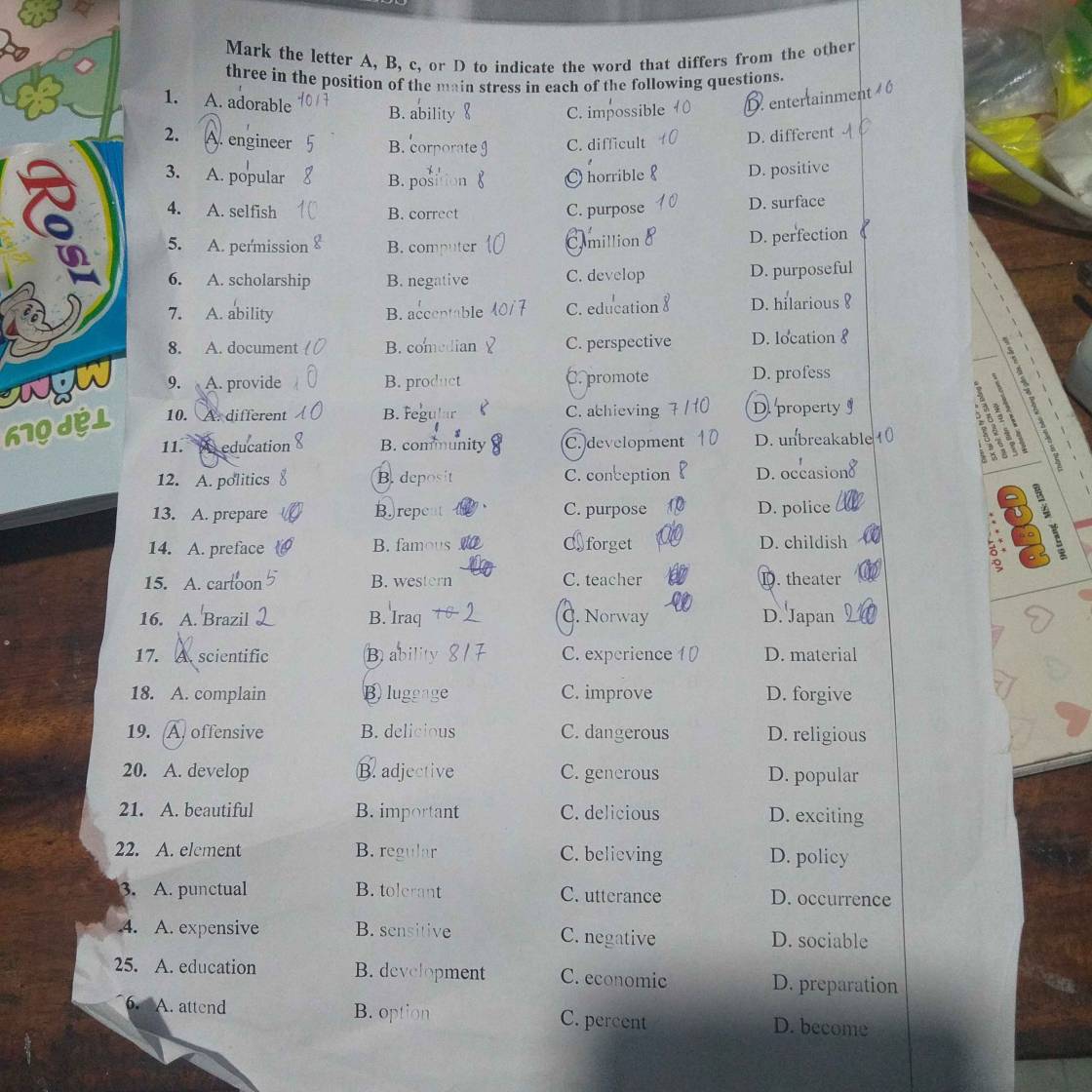
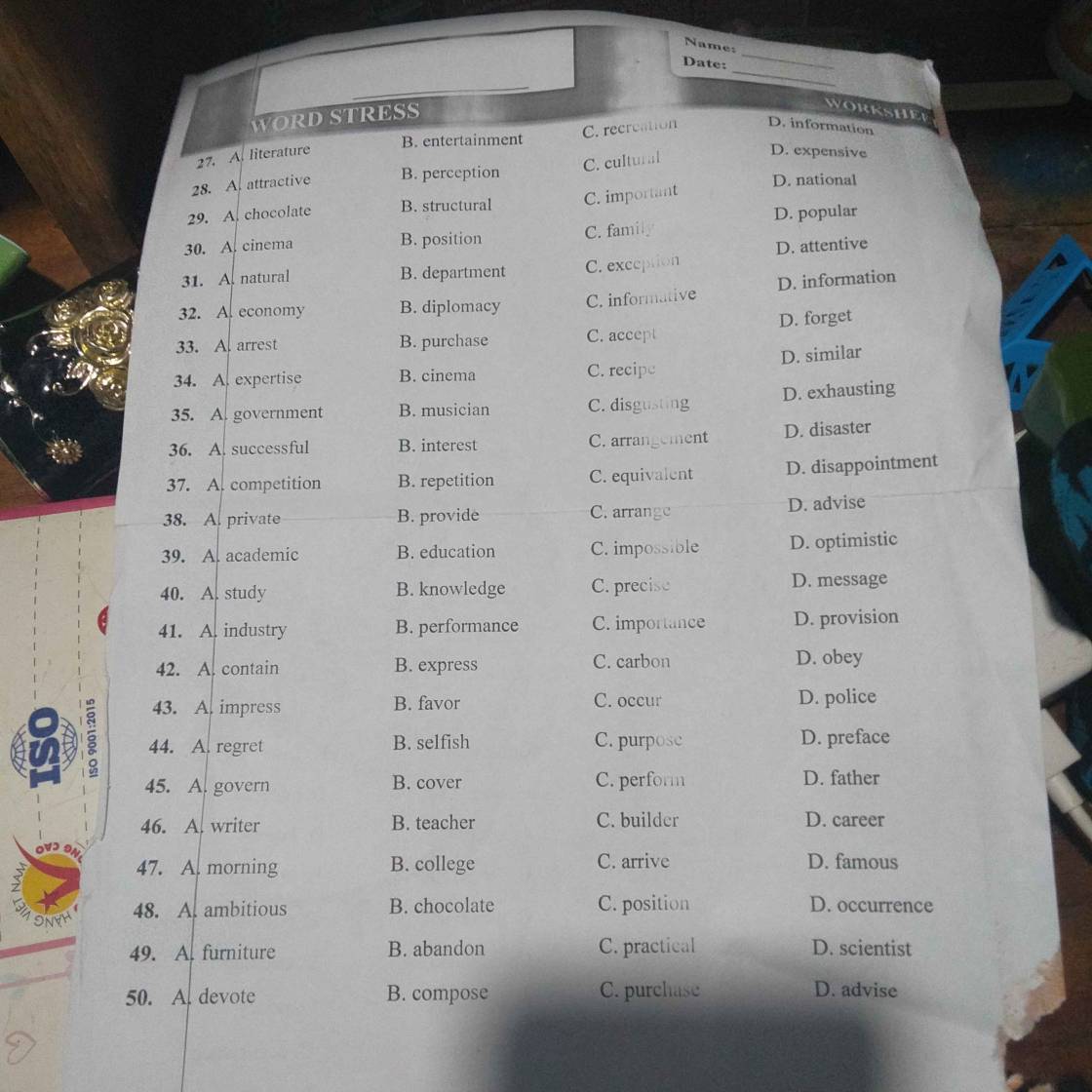
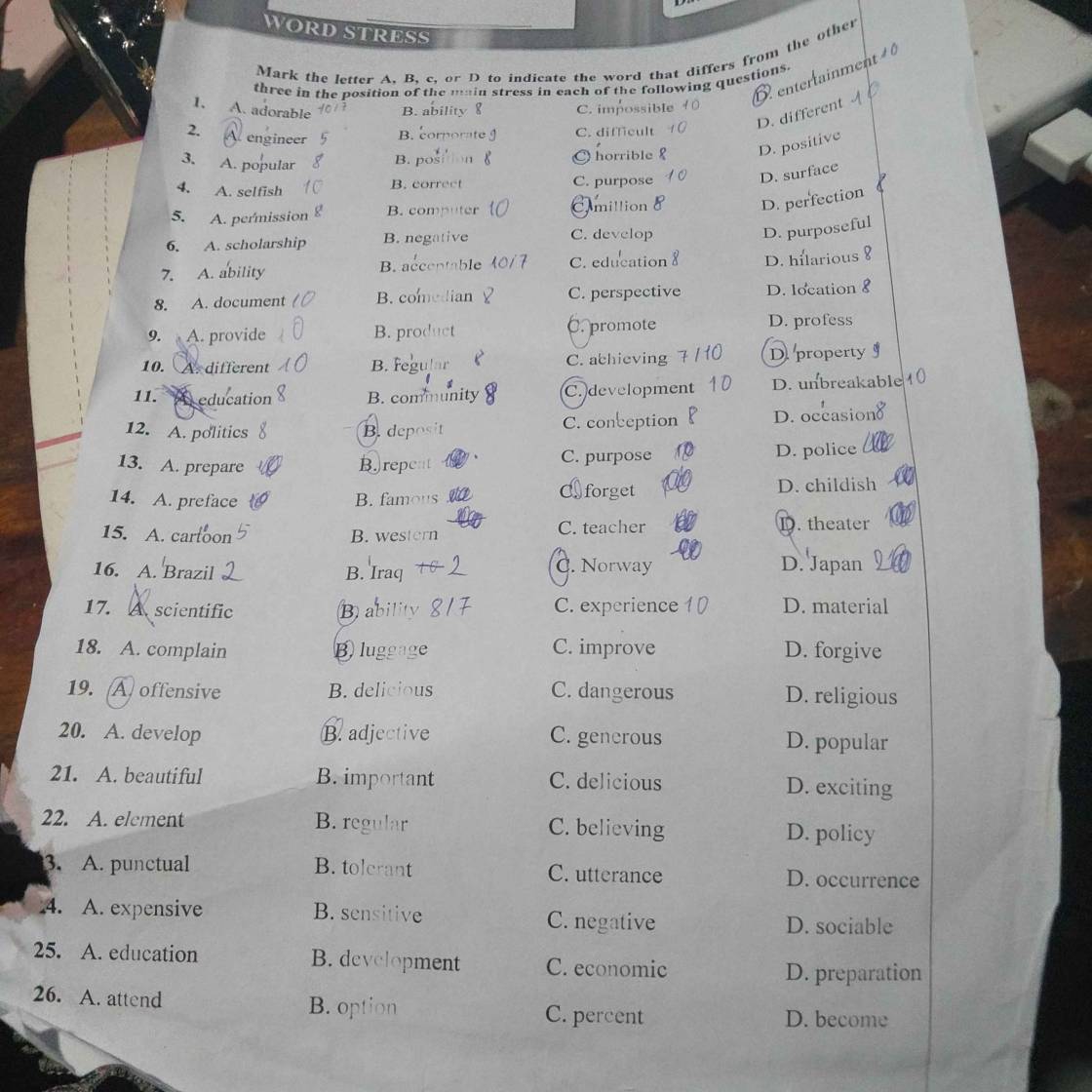
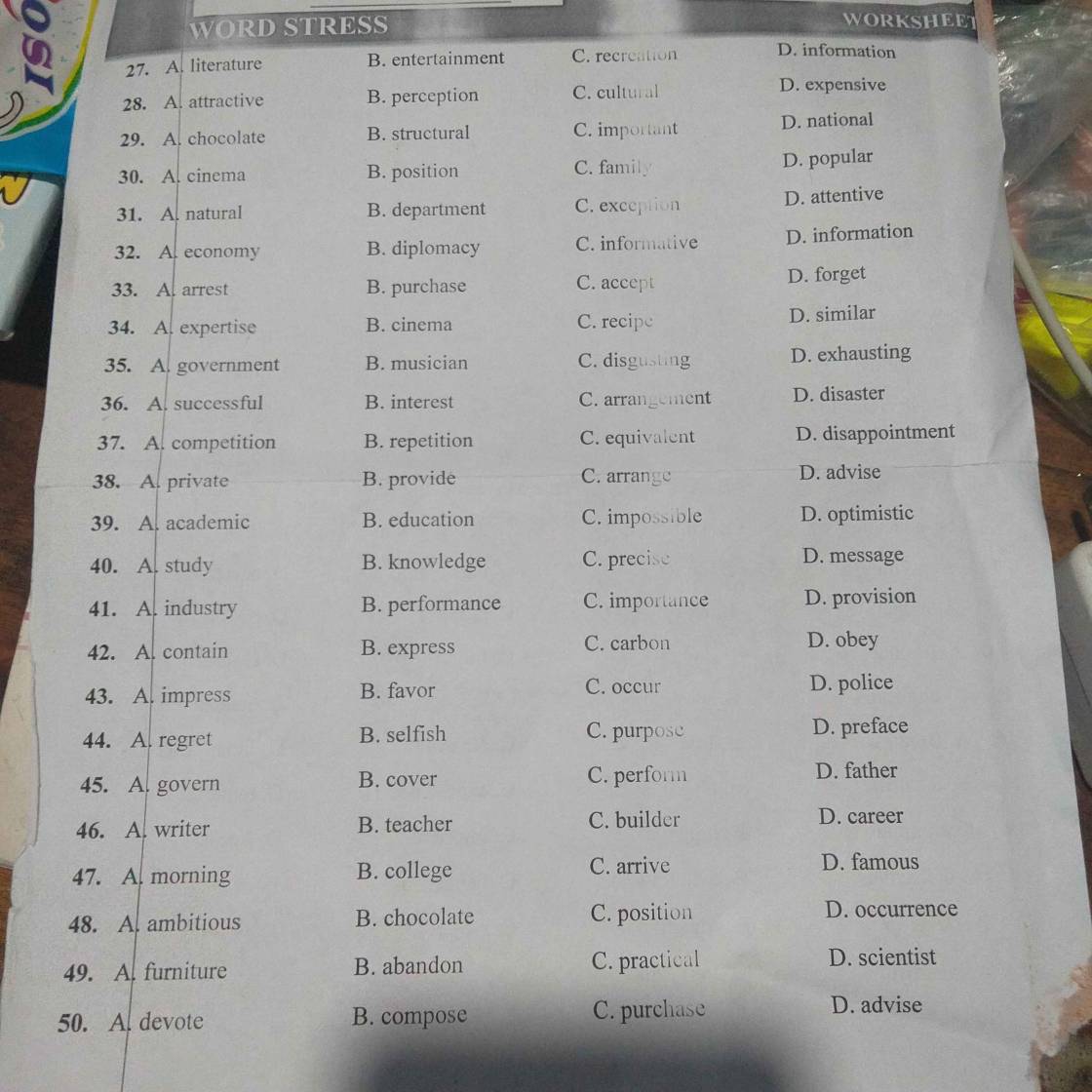


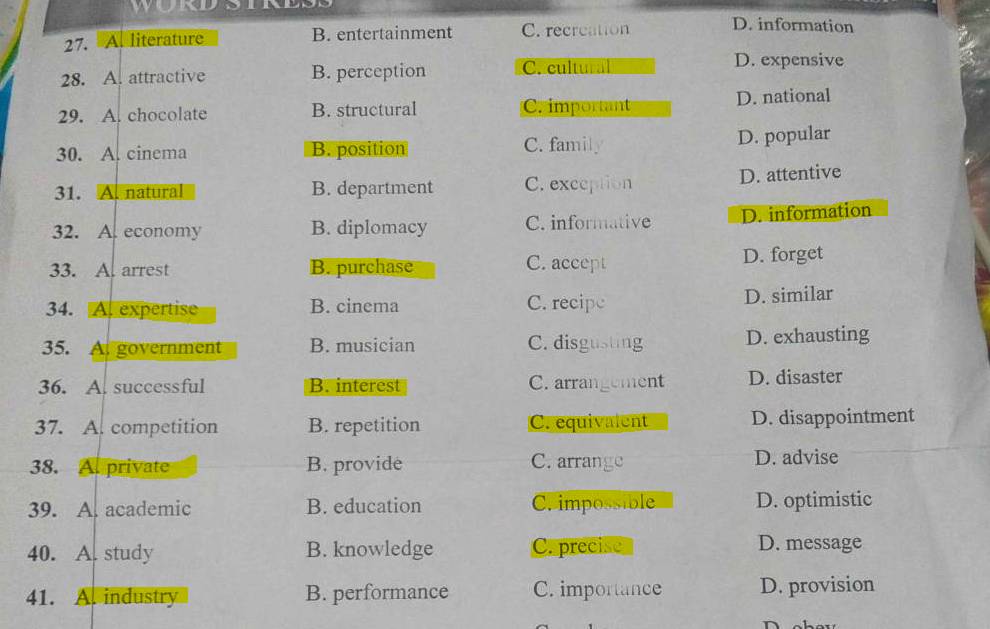
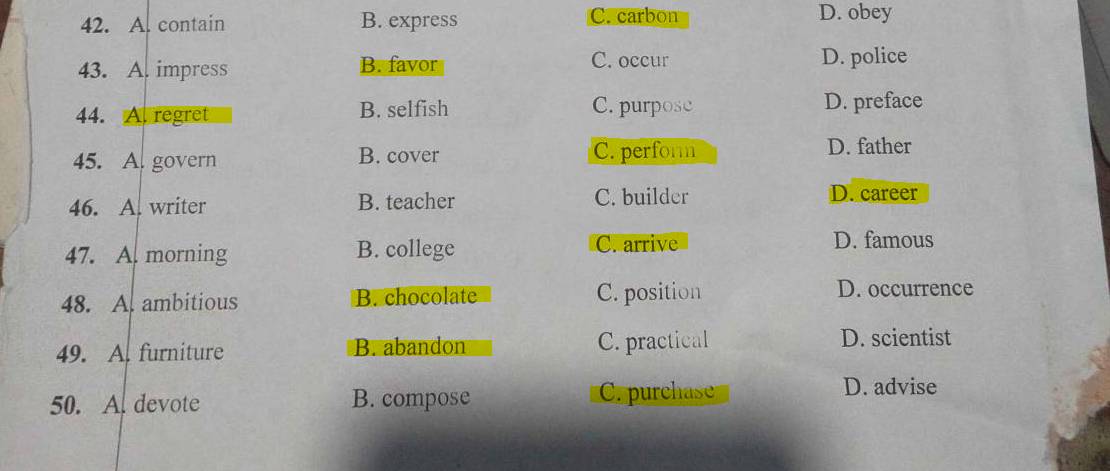
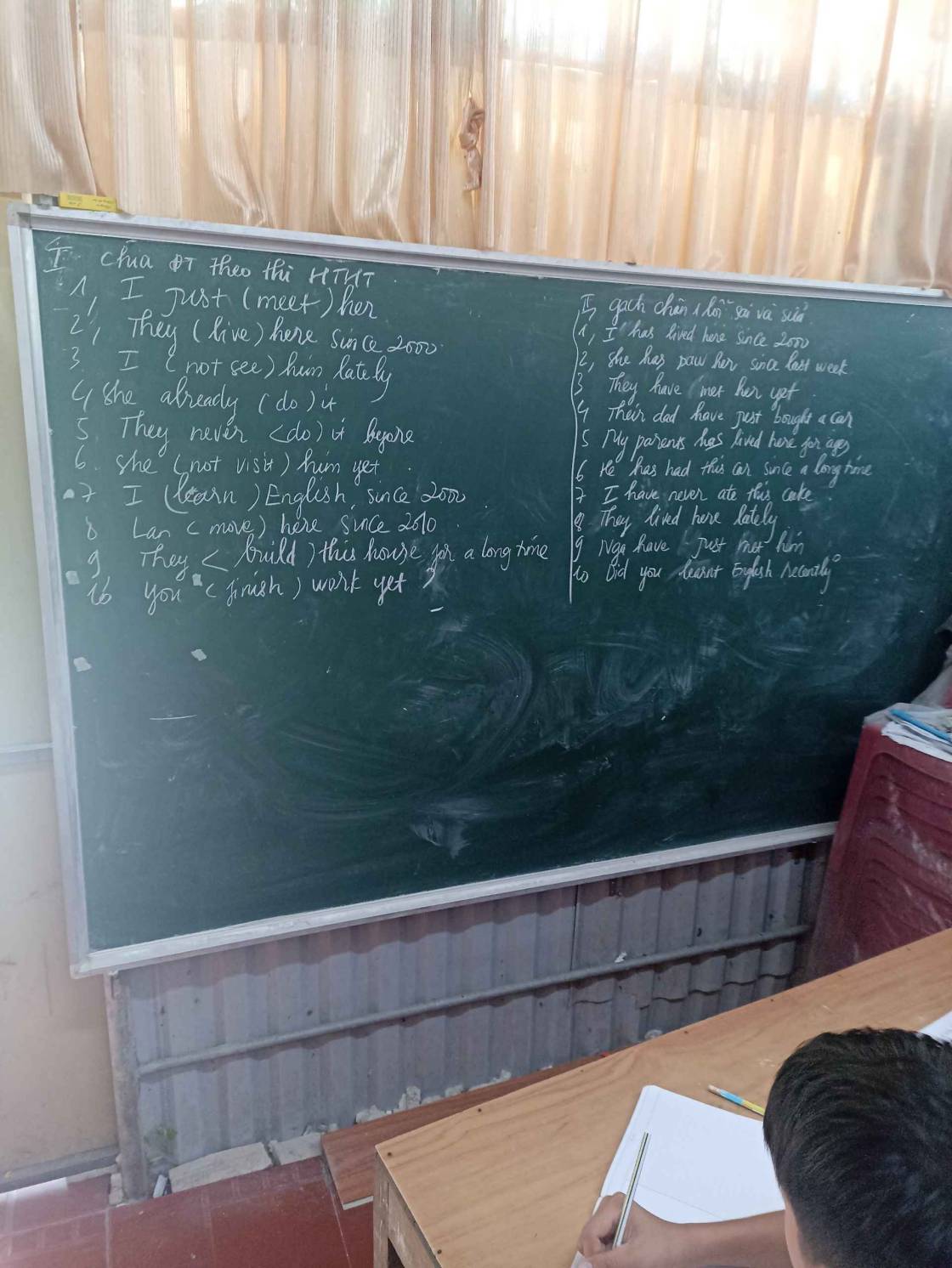
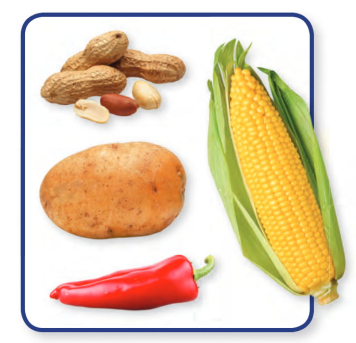
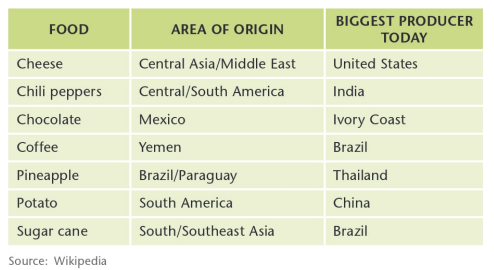

Bài 3:Điền dạng thích hợp của động từ trong ngoặc để hoàn thành các câu sau:
1.Did you enjoy(watch)__watching____the comedy last night?
2.Many people prefer(do)__doing____gardening after their retirement.
3.My cat dislikes(sleep)___sleeping_____on the floor.
4.My father doesn’t mind(work)____working__hard.
5.My cousin doesn’t like(study)___studying______Math and Chemistry.
6.They dislike(talk)_____talking_____with each other.
7.Jim and Jane don’t fancy(go)__going________out tomorrow.
8.Did you hate(eat)__eating____vegetables when you was small?
9.she didn’t prefer(tell)_____telling___him about her plan.
10.James'd like (have)___to have____dinner in a luxury restaurant.
11.I hope my mother will enjoy(spend)__spending_____time with her grandchildren.
12.Some people enjoy(take)___taking___a shower in the morning.
13.I think your brother won’t mind(lend)__lending______you a helping hand.
14.My boyfriend dislike(wait)_____waiting_______.
15.What do you detest(do)___doing_______the most?
Bài 4: Dựa vào các từ cho sẵn, viết thành câu hoàn chỉnh:
1.Peter/ enjoy / play/ computer games/ in his free time.
_____Peter enjoys playing computer games in his free time._________
2.You/ hate/ do/ the washing?
_____Do you hate doing the washing?____________________
3.My father/ enjoy/ play/ sports/ and/ read/ books.
_____My father enjoys playing sports and reading books. ___________
4.The teacher/ 'd like / help/ you/ with difficult exercises.
_____The teacher'd like to help you with difficult exercises.__________
5.Jane/ not fancy/ read/ science books.
______Jane does not fancy reading science books.__________________
6.Which kind of juice/ you/ dislike/ drink/ the most?
______Which kind of juice do you dislike drinking the most?__________________
7. Ann/ fancy/ do /DIY/ in her free time.
______Ann fancies doing DIY in her free time._________________
8. My father/ prefer/ not eat/ out.
________My father prefers not eating out._______________________
9.Mr.Smith/ love/ go/ shopping/ at weekend.
________Mr.Smith loves going shopping at weekend._____________________
10.Everyone/ adore/ receive/ presents/ on their birthday.
_________Everyone adores receiving presents on their birthday._____________
I.BÀI TẬP BỔ SUNG.
Exercise 1. Choose the correct answer.
1. Anna (likes/ hates) doing homework. She is lazy.
2. Lily (likes/ dislikes) the idea of staying out too late. It’s too dangerous.
3. Most girls (detest/ like) cockroaches.
4. Tom (likes/ hates) making models. He never does it.
5. We (enjoy/ hate) spending time with John. He is very interesting.
Exercise 2. Complete the sentences with the verb + -ing.
do; go; play; climb; swim; watch
1. Susan loves _____doing___________ yoga
2. They enjoy ______watching___________ the sports on TV.
3. We really like ____climbing_____________ in the Hoang Lien Son in February.
4. Simon hates _____playing____________ badmintons but he loves football.
5. I don’t like _______swimming____________ in the pool at the sports centre.
6. Do you like _______going_________ running in the morning?
Exercise 3. Rewrite the sentence without changing its meaning
1. My father likes to do gardening at the weekend.
→ My father enjoys _doing gardening at the weekend.__________.
2. She loves to collect glass bottles in her free time.
→ She enjoys _collecting glass bottles in her free time._____________.
3. I enjoy playing soccer.
→ I like playing soccer.____________________.
4. Do you like seeing a water puppet show?
→ Do you ____enjoy seeing a water puppet show?________________.
5. Do you enjoy making models with your friends?
→ Do you _____like making models with your friends?___________.
Exercise 4. Choose the best answer.
1. My mother loves _______ food for my family.
A. preparing B. to prepare C. prepare D. A&B are correct.
2. My grandmother ________ to plant flowers in the garden behind her house.
A. 'd like B. enjoys C. detests D. adores
3. Coco fancies ________ TV. He watches TV whenever he can.
A. to watch B. watched C. watch D. watching
4. My sister hates _______ with the dolls. It’s weird.
A. playing B. to play C. to playing D. A&B are correct.
5. I enjoy ______ with my dog. He’s so cute
A. play B. to play C. playing D. played
6. Tom fancies _______ computer games when he’s at home.
A. playing B. to play C. played D. A&B are correct.
7. Mary _______ reading Conan comics. She spends her free time on reading some volumes.
A. hates B. detests C. dislikes D. enjoys
8. Henry doesn’t mind ________ up early in the morning.
A. waking B. to wake C. wake D. will wake
9. My grandparents love ________ very much. There are a lot of beautiful flowers.
A. doing garden B. doing gardening C. do gardening D. to do garden
10. Nga likes ________ with her close friend on Saturday evenings.
A. window shop B. window to shop C. window shops D. window shopping
11. Do you fancy _______ around the West Lake with me this Sunday morning?
A going B having C. staying D. moving
12. I don't like ________ up early in the winter days. I love ________ in bed late.
A. getting/ stay B. get/ stay C. getting/ staying D. get/ staying
13. My father is fond of ________ a lot of trees and vegetables.
A. growing B. grow C. grew D. grows
14. Teenagers often prefer travelling with their friends ________ travelling with their parents.
A. from B. than C. as D. to
15. His parents are keen on ________ to rock music at night.
A. listening B. listen C. to listen D. to listening
Bài 3:Điền dạng thích hợp của động từ trong ngoặc để hoàn thành các câu sau:
1.Did you enjoy(watch)___watching___the comedy last night?
2.Many people prefer(do)___doing___gardening after their retirement.
3.My cat dislikes(sleep)_____sleeping___on the floor.
4.My father doesn’t mind(work)__working____hard.
5.My cousin doesn’t like(study)_____studying____Math and Chemistry.